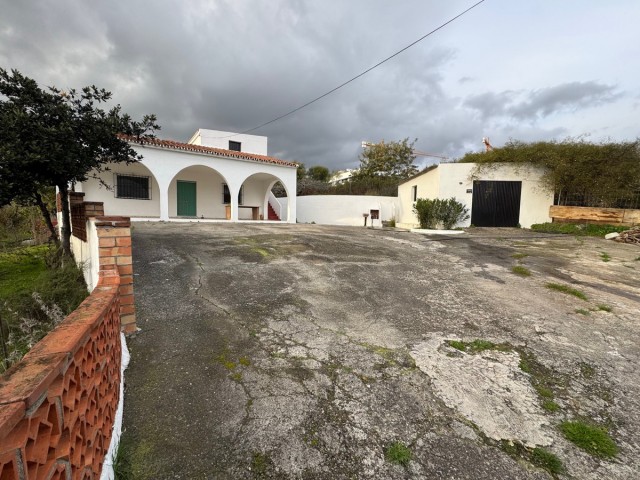Guide to Understanding Spanish Property Taxes: Expert Tips for Smart Investment
Navigating the intricacies of Spanish property taxes is fundamental to making a savvy real estate investment. From the Impuesto sobre Bienes Inmuebles (IBI) to the Plusvalía tax, understanding the taxation landscape is key to maximizing returns and avoiding financial pitfalls. In this comprehensive guide, we delve into the nuances of Spanish property taxes, equipping you with expert insights to make informed decisions. Unlocking the potential of your investment begins with grasping the tax framework, and our guide provides the roadmap. Whether you're eyeing a sun-drenched villa in Andalusia or a chic apartment in Barcelona, knowing the tax implications is paramount. Leverage our tips to navigate through the tax jargon, optimize your investment strategy, and sidestep common taxation misconceptions. With our expert advice, demystify the Spanish property tax landscape and gain the confidence to make shrewd real estate moves. Whether you're a seasoned investor or a first-time buyer, this guide is your passport to seizing the full potential of your Spanish property venture.
Types of Property Taxes in Spain
Spain has a multifaceted system of property taxes that can be a labyrinth for the uninitiated. The Impuesto sobre Bienes Inmuebles (IBI), or Property Tax, is a local tax that is levied annually on the value of real estate. It is crucial to understand that the rates can vary significantly depending on the municipality. Plusvalía, another key tax, is a municipal tax imposed on the increase in the value of land when selling property. Transfer Tax (ITP) and Value Added Tax (VAT) may also apply in certain transactions, adding layers of complexity to the taxation landscape.
Understanding Property Tax Rates and Calculations
The IBI is calculated based on the cadastral value of the property, determined by the local authorities. Plusvalía tax is computed using a formula that considers the number of years the property has been owned and its cadastral value. Transfer Tax (ITP) typically ranges from 6% to 10%, depending on the region and property value. On the other hand, VAT is generally 10% for residential properties and 21% for commercial properties. Understanding these calculations is pivotal for budgeting and avoiding unpleasant surprises.
Tax Deductions and Exemptions for Property Owners in Spain
Spanish tax law provides certain deductions and exemptions for property owners. Mortgage interest, maintenance expenses, and local council taxes are among the deductible expenses. Additionally, if the property is used for business purposes, you may be eligible for further deductions. Understanding these exemptions can significantly impact your overall tax liability and enhance the profitability of your investment.
Expert Tips for Smart Property Tax Planning
Research Local Tax Rates: Municipalities can have vastly different tax rates. Researching and comparing these rates can help you choose a location with favorable taxation for your investment.
Consider Holding Structures: Structuring property ownership through a company or other legal entity can have tax advantages. However, this approach requires careful consideration and professional advice to comply with Spanish tax laws.
Stay Informed about Tax Law Changes: Spanish tax laws are subject to change. Regularly stay updated on legislative developments that may affect property taxation to adapt your investment strategy accordingly.
Explore Tax Incentives for Renovations: Spain offers tax incentives for property renovations, particularly in historic areas. Investigate these incentives to potentially reduce your tax burden while contributing to the preservation of cultural heritage.
Common Mistakes to Avoid When Dealing with Spanish Property Taxes
Underestimating Local Variation: Relying on general information about Spanish property taxes may lead to underestimating the significant variations between different regions and municipalities.
Neglecting Deductible Expenses: Failing to take advantage of available deductions can result in a higher tax burden. Keep meticulous records of all eligible expenses to maximize your tax benefits.
Ignoring Plusvalía Implications: The Plusvalía tax can catch investors off guard. Understanding its implications and factoring them into your investment strategy is crucial to avoid unexpected financial setbacks.
Hiring a Tax Advisor for Property Investments in Spain
Given the complexity of Spanish property taxes, engaging a qualified tax advisor is a prudent move. A professional advisor can provide personalized guidance, help you navigate the intricacies of tax laws, and ensure compliance, ultimately optimizing your investment's financial performance.
Changes in Property Tax Laws and Regulations
Staying abreast of changes in property tax laws is vital for any property investor in Spain. Legislative updates can impact your tax liabilities and influence the overall feasibility of your investment. Regularly consult legal and financial experts to understand and adapt to any modifications in the tax landscape.
Resources for Staying Updated on Spanish Property Taxes
Tax Authorities: Regularly check updates from Spanish tax authorities to stay informed about changes in regulations and tax rates.
Professional Networks: Joining professional networks, forums, and associations can provide valuable insights and updates from fellow investors and experts in the field.
Legal and Financial Publications: Subscribe to legal and financial publications that focus on Spanish real estate and tax matters. These sources often provide in-depth analysis and timely updates.
Conclusion
In conclusion, mastering the intricacies of Spanish property taxes is indispensable for successful real estate investments. From understanding the different taxes to calculating rates, claiming deductions, and staying updated on legal changes, this guide equips you with the essential knowledge for making informed decisions. By leveraging expert tips, avoiding common mistakes, and seeking professional advice, you can navigate the Spanish property tax landscape with confidence. Whether you're a seasoned investor or a first-time buyer, this guide is your comprehensive resource for unlocking the full potential of your Spanish property venture.
















